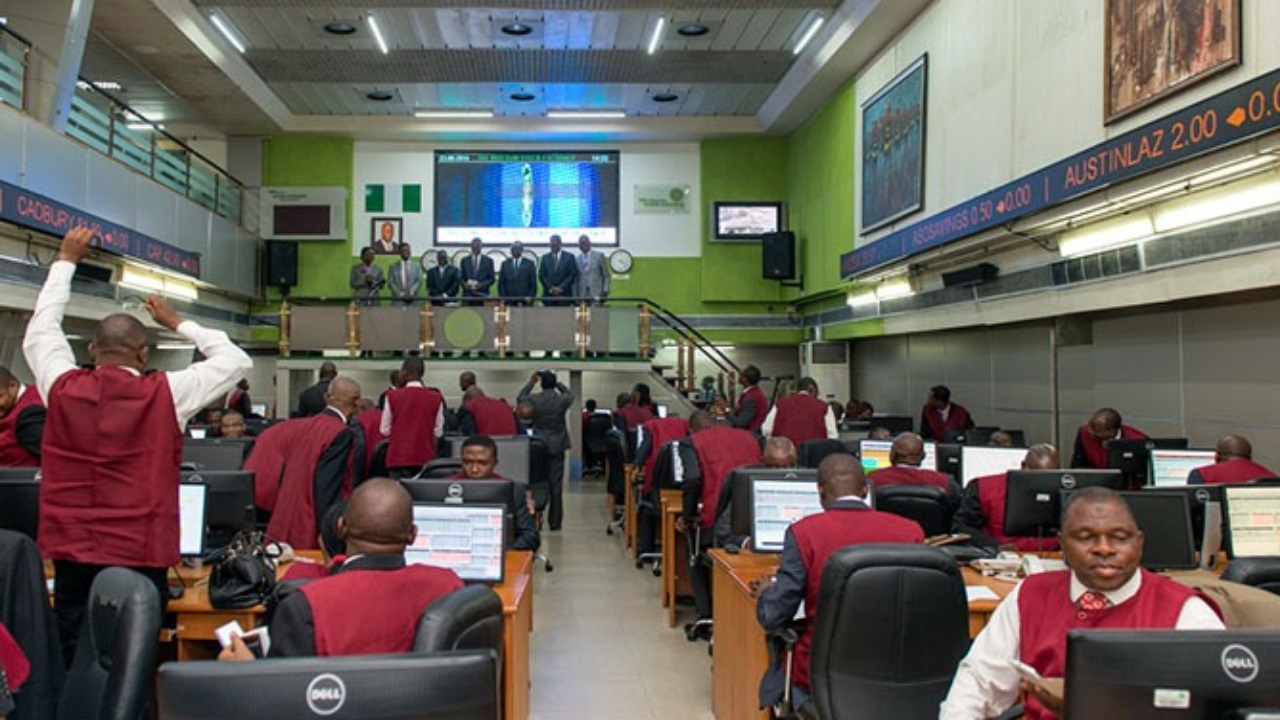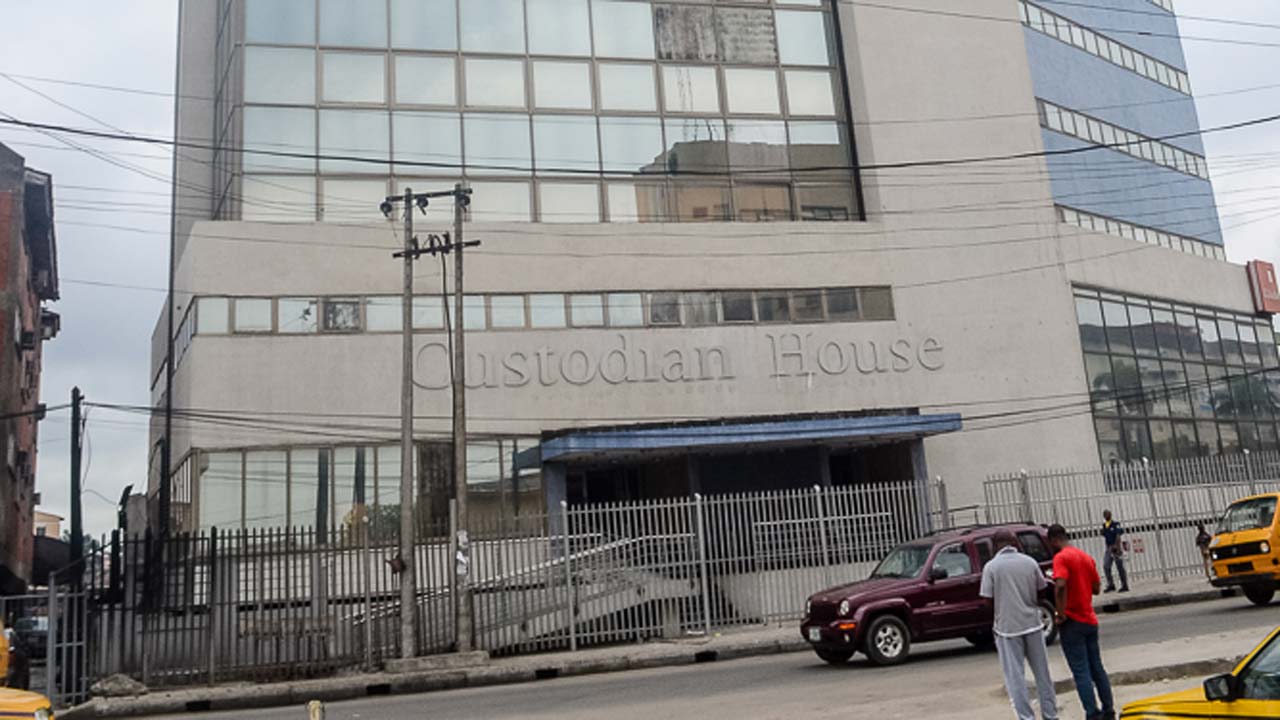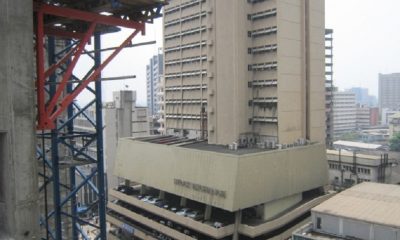Economy
Profit Taking May Contribute To Early Weakness on Wall Street

By Investors Hub
The major U.S. index futures are pointing to a lower opening on Thursday, with stocks likely to move back to the downside after ending the previous session modestly higher.
Profit taking may contribute to initial weakness on Wall Street following the upward trend seen over the past several sessions.
A negative reaction to earnings news from several big-name companies may also weigh on the markets early in the trading day.
Stocks moved modestly higher over the course of the trading session on Wednesday after initially showing a lack of direction. The Dow reached its best closing level in a month, while the S&P 500 rose to a more than five-month closing high.
While the Dow and the S&P 500 closed in positive territory, the Nasdaq edged down 0.67 points or less than a tenth of a percent to 7,854.44. The Dow rose 79.40 points or 0.3 percent to 25,199.29 and the S&P 500 ticked up 6.07 points or 0.2 percent to 2,815.62.
The modest strength on Wall Street was partly due to a positive reaction to earnings news from companies such as United Continental (UAL) and Morgan Stanley (MS).
United surged up by 8.8 percent after reporting better than expected second quarter results and raising its full-year guidance, while Morgan Stanley jumped by 2.8 percent after reporting second quarter results that beat analyst estimates.
Late in the trading day, the Federal Reserve released its Beige Book, which said economic activity continued to expand across the U.S.
Ten of the twelve Fed districts reported moderate or modest growth, while the Dallas district reported strong growth due to strength in the energy sector and the St. Louis district described growth as slight.
The Fed noted manufacturers across the country expressed concern about tariffs, with many districts citing new trade policies for higher prices and supply disruptions.
Overall, prices increased at a modest to moderate pace on average, with several districts reporting upticks in inflation.
The Beige Book noted employment continued to rise at a modest to moderate pace in most districts. All districts reported that labor markets were tight and many said that the inability to find workers constrained growth, the Fed added.
The Fed is scheduled to hold a two-day meeting policy meeting on July 31st and August 1st, with the central bank widely expected to leave interest rates unchanged.
After raising rates twice this year to the current range of 1.75 to 2 percent, the Fed has signaled two more rate hikes before the end of the year.
Earlier in the day, the Commerce Department released a report showing a sharp pullback in new residential construction in the U.S. in the month of June.
The Commerce Department said housing starts plunged by 12.3 percent to an annual rate of 1.173 million in June after jumping by 4.8 percent to a revised rate of 1.337 million in May.
Economists had expected housing starts to drop by 2.2 percent to a rate of 1.320 million from the 1.350 million originally reported for the previous month.
With the much bigger than expected decrease, housing starts fell to their lowest annual rate since hitting 1.158 million last September.
Building permits, an indicator of future housing demand, also fell by 2.2 percent to an annual rate of 1.273 million in June after tumbling by 4.6 percent to a rate of 1.301 million in May.
The continued decrease came as a surprise to economists, who had expected building permits to climb to an annual rate of 1.330 million.
Transportation stocks showed a significant move to the upside over the course of the session, driving the Dow Jones Transportation Average up by 2.3 percent. With the gain, the average reached its best closing level in almost a month.
United Continental and CSX Corp. (CSX) helped to lead the transportation sector higher after reporting better than expected second quarterly results.
Considerable strength also emerged among financial stocks, with the NYSE Arca Broker/Dealer Index and the KBW Bank Index climbing by 1.7 percent and 1.2 percent, respectively.
Steel stocks also turned in a strong performance on the day, while most of the other major sectors ended the session showing only modest moves.
Economy
NGX RegCo Cautions Investors on Recent Price Movements

By Aduragbemi Omiyale
The investing public has been advised to exercise due diligence before trading stocks on the Nigerian Exchange (NGX) Limited.
This caution was given by the NGX Regulation Limited (NGX RegCo), the independent regulatory arm of the NGX Group Plc.
The advisory became necessary in response to notable price movements observed in the shares of certain listed companies over recent trading sessions.
On Monday, the bourse suspended trading in the shares of newly-listed Zichis Agro-allied Industries Plc. The company’s stocks gained almost 900 per cent within a month of its listing on Customs Street.
In a statement today, NGX RegCo urged investors to avoid speculative trading based on unverified information and to consult licensed intermediaries such as stockbrokers or investment advisers when needed.
It explained that its advisory is part of its standard market surveillance functions, as it serves as a measured reminder for investors to prioritise informed and disciplined decision-making.
The notice emphasised that the Exchange will continue to monitor market activities closely in line with its mandate to ensure a fair, orderly, and transparent market.
“NGX RegCo encourages all investors to base their decisions on publicly available information, including a thorough assessment of company fundamentals, financial performance, and risk profile,” a part of the disclosure said.
It reassured all stakeholders that the NGX remains stable, well-regulated, and resilient, saying the platform continues to foster an environment where investors can participate with confidence, supported by robust oversight and transparent market operations.
“Our primary responsibility is to maintain a level playing field where market participants can trade with confidence, backed by timely and accurate information.
“This advisory is a routine communication, reinforcing that sound fundamentals, not speculation, remain the foundation for sustainable investment outcomes. We are fully committed to preserving the integrity and stability of our market,” the chief executive of NGX RegCo, Mr Olufemi Shobanjo, stated.
Economy
Stronger Taxpayer Confidence, Others Should Determine Tax Reform Success—Tegbe

By Modupe Gbadeyanka
The chairman of the National Tax Policy Implementation Committee (NTPIC), Mr Joseph Tegbe, has tasked the Nigeria Revenue Service (NRS) to measure the success of the new tax laws by higher voluntary compliance rates, lower administrative costs, fewer disputes, faster resolution cycles, and stronger taxpayer confidence.
Speaking at the 2026 Leadership Retreat of the agency, Mr Tegbe said, “Sustainable revenue performance is built on trust and efficiency, not enforcement intensity,” emphasising that the legitimacy and predictability of the system are more critical than punitive measures.
He underscored that the country’s tax reform journey is at a critical juncture where effective implementation will determine long-term fiscal outcomes.
The NTPIC chief stressed that tax policy must serve as an enabler of governance, and should embody simplicity, equity, predictability, and administrability at scale.
These principles, he explained, foster voluntary compliance, reduce operational friction, and strengthen investor confidence. He warned that ad-hoc adjustments or policy drift could undermine reform momentum, unsettle businesses, and deter investment, which thrives on predictable rules rather than shifting announcements. Structured sequencing, clear transition mechanisms, and continuous feedback between policymakers and administrators are therefore critical to sustaining reform credibility.
Mr Tegbe further argued that revenue reform cannot succeed in isolation. Achieving sustainable gains requires a whole-of-government approach, leveraging robust taxpayer identification systems, integrated financial data, efficient dispute resolution, and harmonised coordination across federal and sub-national levels. This approach, he said, reduces leakages, eliminates multiple taxation, and reinforces confidence in the system.
He noted that the passage of four new tax laws marks only the beginning of a broader reform agenda, describing the initiative as a systemic recalibration of Nigeria’s fiscal architecture, rather than a routine policy update.
He further asserted that the true measure of success will be the credibility of implementation, not the design of the laws themselves.
The NRS, he noted, functions as the nation’s “Revenue System Integrator,” with outcomes reflecting the strength of an interconnected ecosystem that encompasses policy clarity, enforcement consistency, digital infrastructure, dispute resolution efficiency, and intergovernmental coordination.
Economy
NUPENG Seeks Clarity on New Oil, Gas Executive Order

By Adedapo Adesanya
The National Union of Natural and Gas Workers (NUPENG) has expressed deep concern over the Executive Order by President Bola Tinubu mandating the Nigerian National Petroleum Company (NNPC) Limited to remit directly to the federation account.
In a statement signed by its president, Mr William Akporeha, over the weekend in Lagos, the union noted that the absence of detailed public engagement had naturally generated tension within the sector and heightened restiveness among workers, who are anxious to know how the new directive may affect their employment, welfare and job security, especially as it affects NNPC and other major operations in the oil and gas sector.
It pointed out that the industry remained the backbone of Nigeria’s economy, contributing significantly to national revenue, foreign exchange earnings, and employment.
The NUPENG president affirmed that any policy shift, particularly one introduced through an Executive Order, has far-reaching consequences for regulatory frameworks, Investment decisions, operational standards, and labour relations within the sector.
According to him, “there is an urgent need for clarity on the scope and objectives of the Executive Order -What precise reforms or adjustments does it introduce? “Its implications for the Petroleum Industry Act -Does the Order amend, interpret, or expand existing provisions under PIA?
“Impact on workers and existing labour agreements-Will it affect job security, conditions of service, Collective Bargaining agreements or ongoing restructuring processes within the industry? “Effects on indigenous participation and local content development -How will it affect Nigerian companies and employment opportunities for citizens?”
He warned that without proper consultation and explanation, misinterpretations of the Executive Order may spread across the industry, potentially destabilising operations and undermining industrial harmony that stakeholders have worked hard to sustain.
“Though our union remains committed to constructive engagement, national development and stability of the oil and gas sector, however, we are duty-bound and constitutionally bound to protect the rights and welfare and job security of our members whose livelihoods depend on a clear, fair and predictable policy framework,” Mr Akporeha further stated.
-

 Feature/OPED6 years ago
Feature/OPED6 years agoDavos was Different this year
-
Travel/Tourism10 years ago
Lagos Seals Western Lodge Hotel In Ikorodu
-

 Showbiz3 years ago
Showbiz3 years agoEstranged Lover Releases Videos of Empress Njamah Bathing
-

 Banking8 years ago
Banking8 years agoSort Codes of GTBank Branches in Nigeria
-

 Economy3 years ago
Economy3 years agoSubsidy Removal: CNG at N130 Per Litre Cheaper Than Petrol—IPMAN
-

 Banking3 years ago
Banking3 years agoSort Codes of UBA Branches in Nigeria
-

 Banking3 years ago
Banking3 years agoFirst Bank Announces Planned Downtime
-

 Sports3 years ago
Sports3 years agoHighest Paid Nigerian Footballer – How Much Do Nigerian Footballers Earn



















